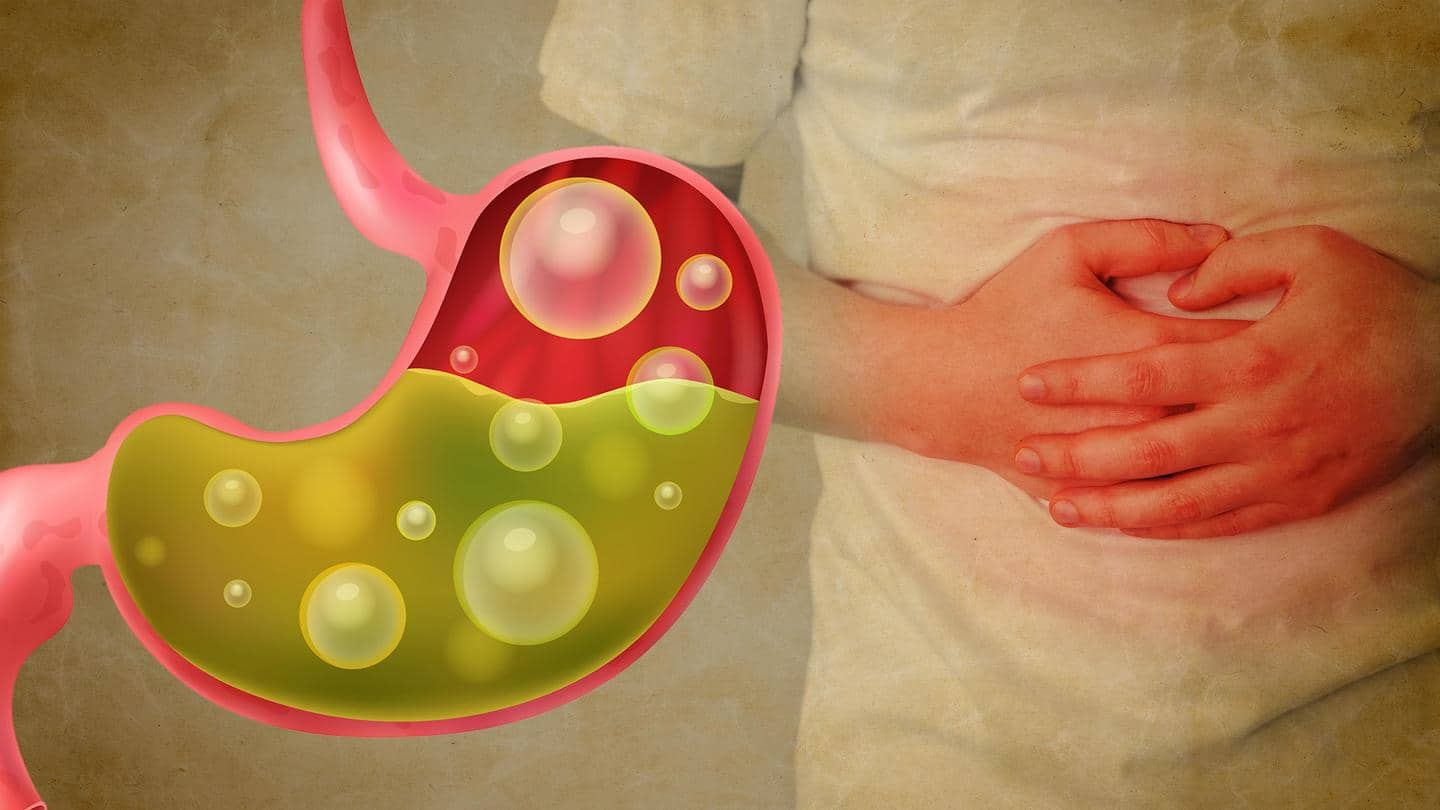
Acid reflux: Meaning, causes, symptoms, remedies, and treatment
What's the story
Suffering from acid reflux? Here's everything you should know about it. If enjoying your favorite food often brings along the risk of acid reflux for you, fret not, you aren't alone. Almost everyone complains about it, despite following a relatively healthy lifestyle. From causes to treatments, Aakash Bansal, certified dietician, founder, and fitness expert at FormFit explains everything about acid reflux.
Context
Here's what our expert says
Gastroesophageal reflux disease aka hyperacidity occurs due to acid escaping from the stomach into the esophagus due to a loose lower esophageal sphincter. Food that can neutralize the acid i.e. alkaline food and those that absorb the acid reduce the reflux. High-fibre and mineral items such as oatmeal, fresh fruits, vegetables, nuts, and seeds are good for reducing acid reflux.
Meaning
Acid reflux occurs when the stomach acid reaches your esophagus
Normally, the lower esophageal sphincter (LES) closes down when food passes through it. However, if it remains open too often, the acid from your stomach reaches your esophagus. This causes a digestive disease called acid reflux. "Most of us are familiar with the painful, burning sensation in the center of the chest. The medical term for this is acid reflux," says Aakash Bansal.
Causes
Being over-weight or regular smoking can lead to acid reflux
There are multiple causes that can land you experiencing acid reflux. "Being overweight, pregnant, or regular smoking can increase the chances of acid reflux," says Bansal. Snacking right before you hit the sack is another major cause of this disease. "Further, eating large meals, drinking alcohol, tea, coffee or carbonated drinks frequently can all cause acid reflux," he adds.
Symptoms
You may experience sore throat, hoarseness, and bad taste
Besides burping, chest pain, and nausea, there are a host of other symptoms that one may experience during acid reflux. "Acid reflux can cause sore throats and hoarseness and may literally leave a bad taste in your mouth," shares Bansal. One may even go through wheezing, unexpected weight loss, and dry cough. "Heartburn is another most recognizable symptom of acid reflux," he concluded.
Home remedies
'Eat smaller meals and avoid eating right before bedtime'
In most cases, acid reflux can be managed at home by bringing in a few changes to your lifestyle. "There are certain steps that you can take to avoid acid reflux, like eating smaller meals, not eating close to bedtime, keeping your weight under control, and quitting smoking," suggests Bansal. In addition to this, you can also avoid wearing tight clothes.
Treatment
'Seek a doctor if over-the-counter medicines fail'
There could be instances when even medicines and lifestyle changes fail to offer you respite. "If lifestyle changes and pharmacy medicines are not helping your heartburn, it is recommended to see a doctor. Your doctor might recommend surgery if you've developed complications of GERD (gastroesophageal reflux disease)," says Bansal. The treatment is only done as a last resort when medicines prove to be inadequate.